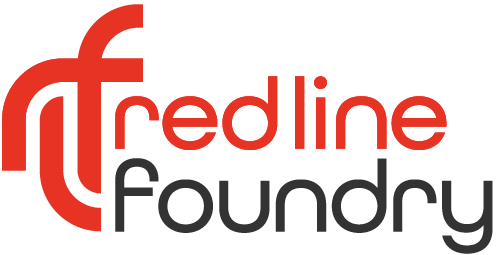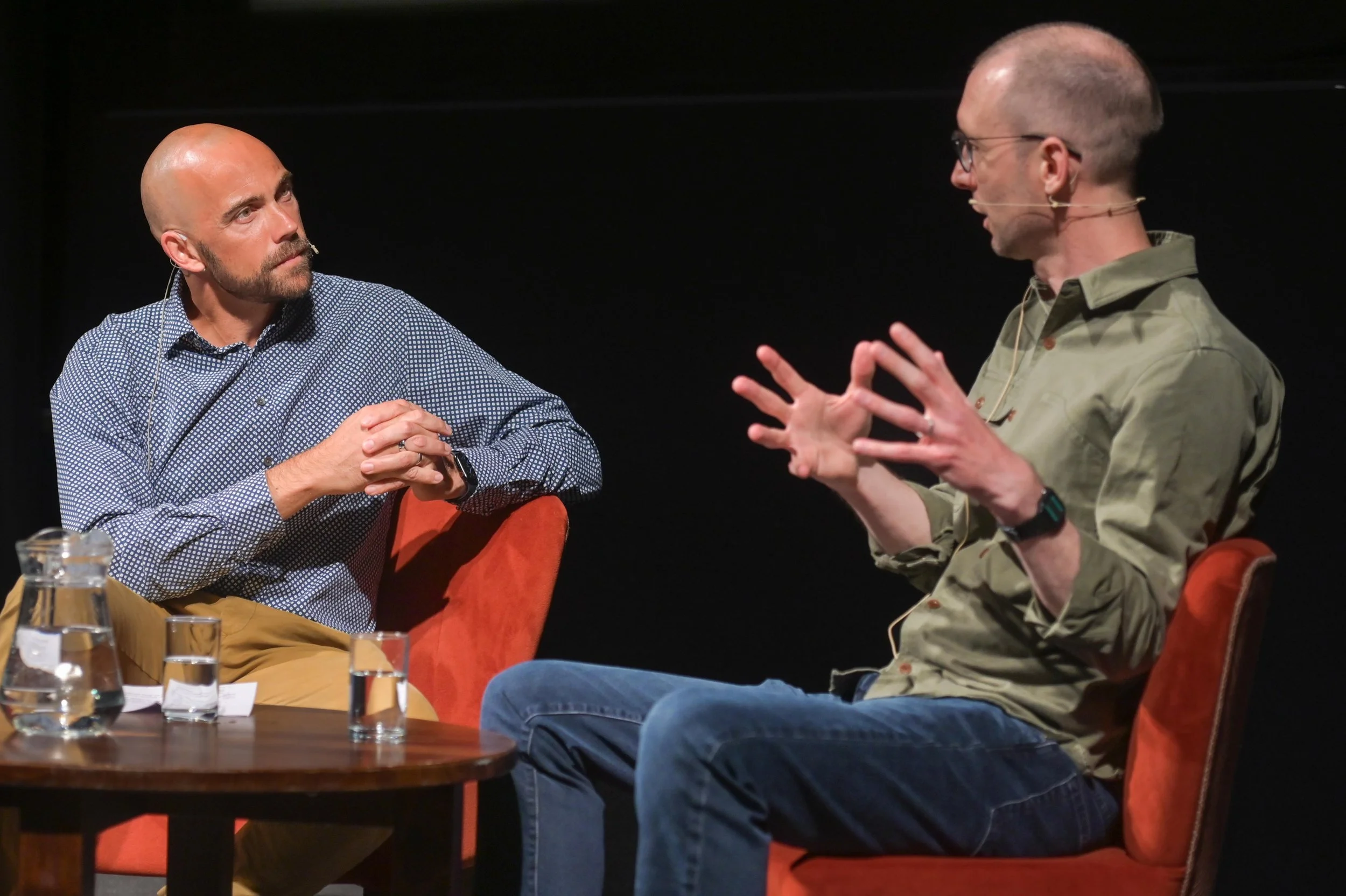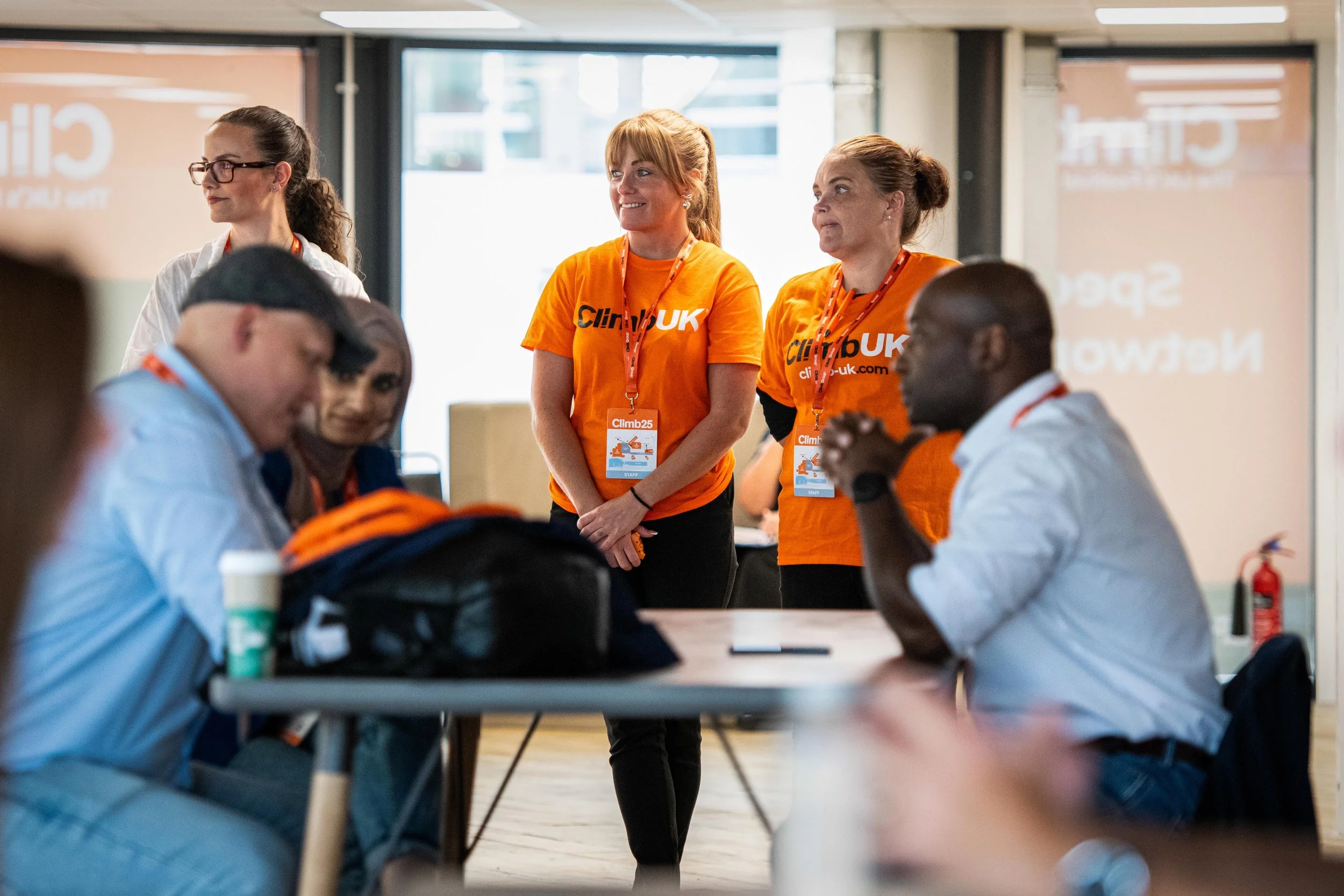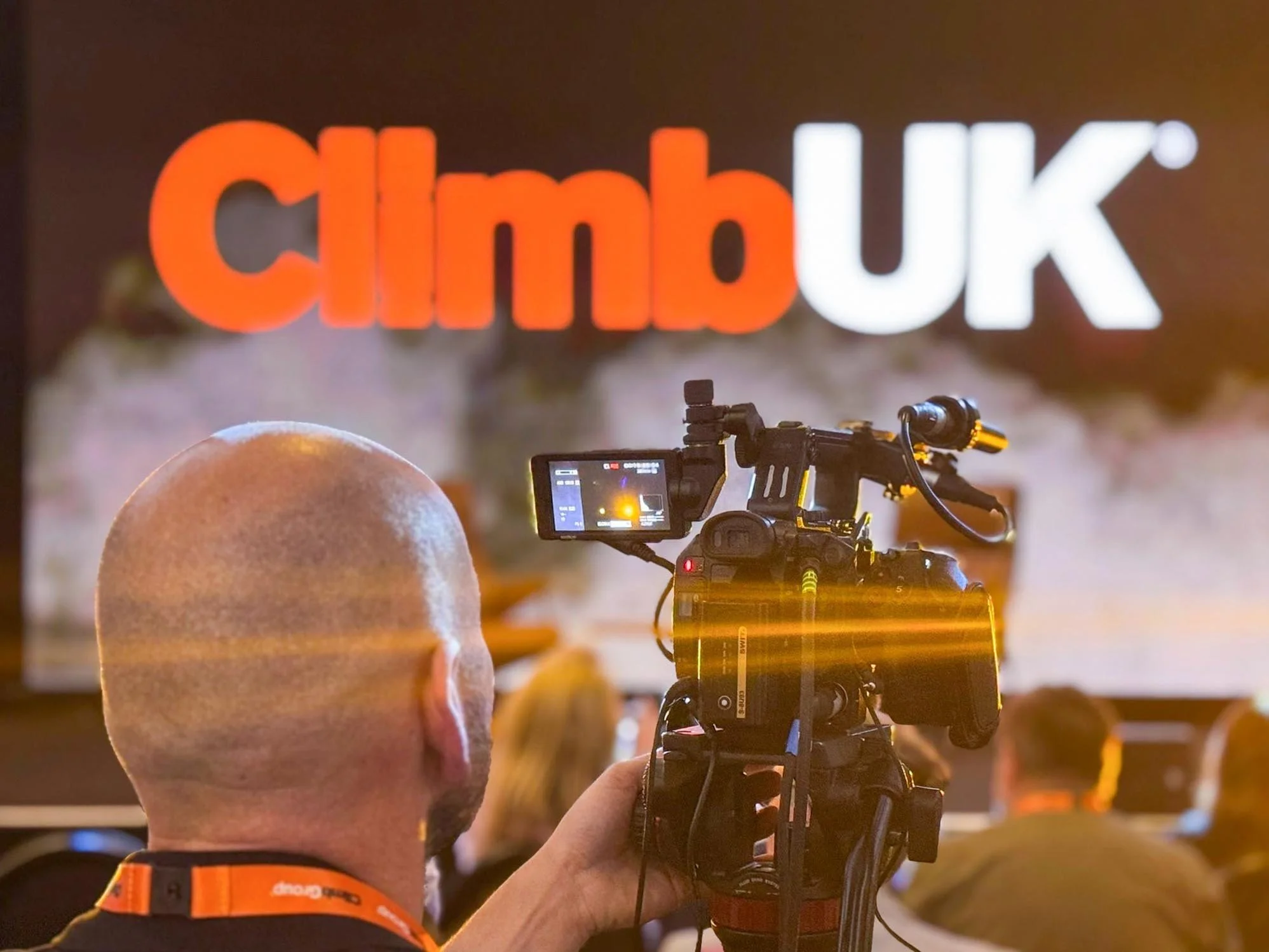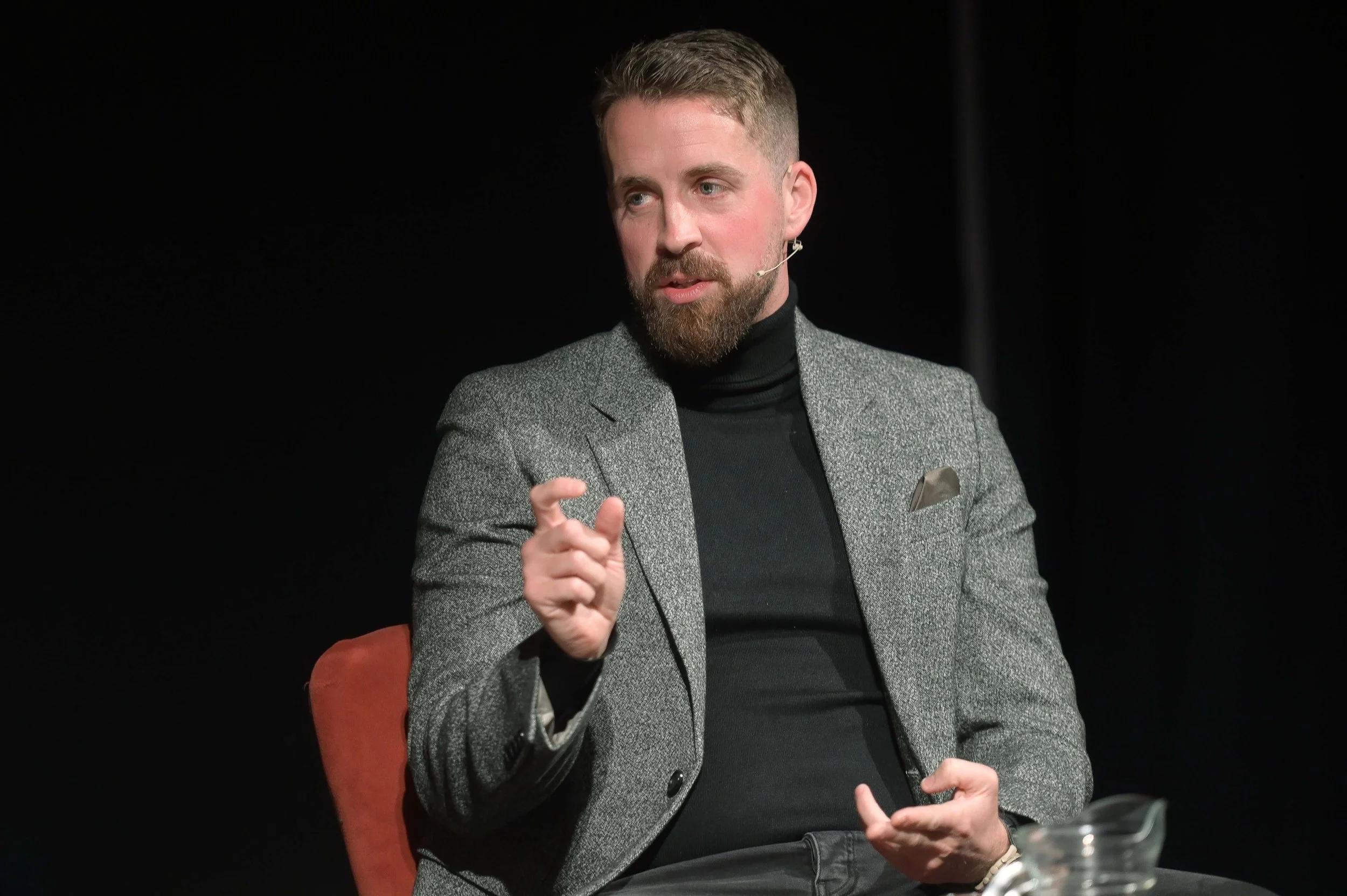Growth Architects
Five growth principles we learned from Climb 25
At Climb25, the UK’s festival of innovation, industry and investment, Mark Roberts interviewed six guests for a series called Growth Architects. His aim was to discover insights for how successful businesses unlocked growth, regardless of size. In this article, Mark unpicks the lessons from start-up founders to business leaders in large corporations, to find the shared principles for business growth.
Growth. By any definition, the word ‘growth’ is simple to understand. It’s the process of increasing in size. That could be a plant, a human, or a business. Yet the mechanics that go into business growth are wildly complex. Different businesses will have different definitions, and what growth means to a start-up is usually quite different to a multinational.
Scaling a business is a complex process, with dozens of levers to pull, and each decision cascading into the next. How, as a business leader, can you ensure you’re building the right foundations and taking the right actions to achieve growth? You also need the right team to build it in the first place.
There is a set of common principles, however, that emerged during my conversations in the Growth Architects talks. From these conversations with business leaders who are achieving growth within companies of all sizes, it is clear there is an unerring dedication to innovation. Innovate or die, is a common refrain, but it’s true. If you’re not innovating, you’re not growing, at least not in a sustainable way. Each of my guests – from a head of innovation in Britain’s best-selling tea brand, and the CEO of a start-up drinks company, a growth manager in one of the biggest tech companies on earth, and the head of a high investment fund – spoke about similar challenges, and generously shared how they overcame them. Although each came from very different angles, sizes of business and stages of development, they explained how to maintain innovation no matter what. The lessons they shared fell under five key themes: empowering people, continuous improvement, speed and velocity of execution, where to focus your energies and being obsessed with the customers’ needs.
In my recent book, The Entrepreneur Within: How to FORGE innovation-led growth by embracing the inner entrepreneur, I’ve tried to distil a lot of practical advice on how to maintain the growth mindset as a company grows. It is probably challenge number one, and as all of my guests can attest, innovation is hard, really hard. Why is this? Well, the larger the business, the more processes it requires to keep it growing efficiently. The Core OS – essential to help run the day-to-day efficiently – needs to sit alongside the venture OS, which is designed to get new ideas off the ground. The business needs to be ambidextrous. They need to grow sustainably and efficiently, BUT must maintain the entrepreneurial mindset. Growth usually leads organisations to become slower, safer and siloed. Profitable? Probably. Innovative? Not necessarily.
How to overcome these growing pains and maintain the entrepreneurial mindset was usually my starting question at Climb25. The answers were varied but common principles shone through. Here’s what we learnt.
Empower Through Ownership
Ben Mortimer is the Head of Innovation at Bettys & Taylors, the family-owned Yorkshire business behind the nation’s beloved Yorkshire Tea. Ben describes himself as a designer “at heart and by training,” and it’s clear he approaches innovation with a creative instinct, even when working inside a large, complex organisation.
“Our heritage, values and brands have brought us real success, but the world is shifting,” Ben told me on stage at Climb25. “Consumers are changing. Tea drinkers still want a proper brew, but there are fewer of them around. So we’re working hard to evolve.”
Ben recognises the innovator’s dilemma, the paradox I mentioned, whereby scale can work against new ideas. “The bigger you get, the harder it is to back small, unproven ideas because they look like they won’t move the needle.”
So how did Ben help to shift the mindset to one where innovation needs to happen quickly, without ever resting on their laurels, even if it is a market leader?
The first is introducing a sharper sense of ownership. “Big organisations need specialists,” Ben argues. “Everyone inputs: the best marketing, technical, design and copy. The best people are on the job. Done well, this is how you scale fast. But in the very beginning, when something is completely new and full of uncertainty, that model can slow things down.
“That’s where I’ve found flipping it on its head is a game-changer. You find the right person with that start-up mindset. Give it to them. Make them the founder. They own it, end-to-end.
“We say, ‘You own that project, you’re the founder. And you’ve got a period of time in which to make it work, but it’s all yours’.”
Related to that is introducing a bit of jeopardy. “For our new innovations, our starting point is: ‘This will fail, prove it won’t’. It sounds like a small thing, but it’s powerful. It changes how people behave. The focus shifts from trying to make something work at all costs to proving that it can. That change opens up creativity, encouraging experiments, new ideas and smarter choices. There’s tension. Risk.”
And the third shift in mindset is psychological safety. “We want to encourage bravery, but that’s hard when you’re also holding the brand, the crown jewels of any business. With something as valuable as a nationally recognised brand, the natural instinct is to protect it. So we’ve started experimenting with working without the brand at the early stage. Instead, we create lightweight, temporary brand identities to test ideas, push our thinking and find our market. On the surface, it sounds ridiculous: why set aside your biggest asset? But once the pressure was lifted, once the brand wasn’t in the room, the magic started. We could really disrupt. The brand comes later.”
The best innovation happens when people are trusted to lead, take risks and learn in motion.
Empower through ownership
Ben Mortimer is the Head of Innovation at Bettys & Taylors, the family-owned Yorkshire business behind the nation’s beloved Yorkshire Tea. Ben describes himself as a designer “at heart and by training,” and it’s clear he approaches innovation with a creative instinct, even when working inside a large, complex organisation.
“Our heritage, values and brands have brought us real success, but the world is shifting,” Ben told me on stage at Climb25. “Consumers are changing. Tea drinkers still want a proper brew, but there are fewer of them around. So we’re working hard to evolve.”
Ben recognises the innovator’s dilemma, the paradox I mentioned, whereby scale can work against new ideas. “The bigger you get, the harder it is to back small, unproven ideas because they look like they won’t move the needle.”
So how did Ben help to shift the mindset to one where innovation needs to happen quickly, without ever resting on their laurels, even if it is a market leader?
The first is introducing a sharper sense of ownership. “Big organisations need specialists,” Ben argues. “Everyone inputs: the best marketing, technical, design and copy. The best people are on the job. Done well, this is how you scale fast. But in the very beginning, when something is completely new and full of uncertainty, that model can slow things down.
“That’s where I’ve found flipping it on its head is a game-changer. You find the right person with that start-up mindset. Give it to them. Make them the founder. They own it, end-to-end.
“We say, ‘You own that project, you’re the founder. And you’ve got a period of time in which to make it work, but it’s all yours’.”
Related to that is introducing a bit of jeopardy. “For our new innovations, our starting point is: ‘This will fail, prove it won’t’. It sounds like a small thing, but it’s powerful. It changes how people behave. The focus shifts from trying to make something work at all costs to proving that it can. That change opens up creativity, encouraging experiments, new ideas and smarter choices. There’s tension. Risk.”
And the third shift in mindset is psychological safety. “We want to encourage bravery, but that’s hard when you’re also holding the brand, the crown jewels of any business. With something as valuable as a nationally recognised brand, the natural instinct is to protect it. So we’ve started experimenting with working without the brand at the early stage. Instead, we create lightweight, temporary brand identities to test ideas, push our thinking and find our market. On the surface, it sounds ridiculous: why set aside your biggest asset? But once the pressure was lifted, once the brand wasn’t in the room, the magic started. We could really disrupt. The brand comes later.”
The best innovation happens when people are trusted to lead, take risks and learn in motion.
Finding marginal gains
This growth mindset is something highlighted by another of my guests, Ruari Tobin, who leads growth for Cisco, a company with a staggering £58 billion turnover and more than 10,000 customers in the UK alone. Cisco might be best known as ‘the networking people’ but Ruari points out that their number one priority today is becoming the world’s leading cybersecurity vendor.
“We’ve had to adopt a challenger mindset,” he explained. “Because there’s so much competition out there.”
To get that shift, Ruari is a firm believer in the principle of marginal gains. “Every company I’ve ever worked for says, ‘Yes, but what’s the one thing we can do to get to here?’ And often they don’t like the answer I give which is to focus on marginal gains, the essential things that drive positive energy and focus in the right areas.
“That also comes from great analytics: knowing where the market is going, where the opportunities are.”
Ruari’s reflections are a reminder that sustainable growth isn’t always about betting big and aiming for the moonshot; instead, it’s about creating a culture of improvement. It’s also just about getting things done. My next guest, Jon Coker, founding partner at Eka Ventures, clearly holds this in high importance too and for him, it’s about speed combined with quality.
Move fast, keep standards high
For Jon Coker, founding partner at Eka Ventures, a seed-stage venture capital firm investing from a £70 million fund, the ‘speed of execution’ is a critical factor. And it’s something that Jon will actively look for, even in very early conversations with start-ups.
Jon has been a venture investor since 2007, backing well-known brands such as Gousto, Bloom & Wild, Hive and Runner. Having seen hundreds of companies either grow or fail, Jon has distilled his lessons down to two core themes: speed of execution and building a personal brand. And, as he put it, “none of these things feel comfortable to anyone.”
The first lesson, and one we both agree on, is speed. At Eka, they call it a ‘bias for action’, a phrase that resonated with me.
“Speed of execution combined with quality is the cheat code in building a business,” Jon explains. “You know you’re going to be competing against big incumbent companies, so your main advantage is speed. If you repeatedly pause decisions as an entrepreneur, the business will die. The only way to build a sustainable business is to move through things really quickly. We see that in all of the companies that have been successful that we’ve worked with.”
But how do you move fast while retaining quality I asked him. “I think there’s this feeling that if you do things quickly, you’re cutting corners, but actually the best people I’ve worked with just have an incredibly high bar for quality of work.”
The second interesting insight was around personal brand. Ten or fifteen years ago, this was confined to high-profile leaders… you know the ones. But now, Jon sees it as central to the success of a business.
“The founders that I’ve seen who have been really successful recently have told the story of what they’re building in the company: pictures of the team growing, talking about revenue growth, talking about big decisions. It’s very personal.
James Duffy, the co-founder and COO of Seat Unique, was completely in agreement. Speed of execution and instilling an entrepreneurial mindset in his team – every single person – is critical. Seat Unique is a marketplace and distribution platform for premium tickets to live events across sport, music and culture. Launched in 2019, just before the pandemic, the company has since expanded to a team of 120 in London and Manchester. It is growing rapidly and will soon launch in overseas territories.
“Instil your vision, values and mission into the DNA of the business from day one,” James said. “For Seat Unique, that DNA meant three things: an entrepreneurial mindset from top to bottom, an obsession with speed and execution, and the sheer hustle needed to disrupt the live events and ticketing space.”
The hustle is something that James believes helped them get an investment. “Because all of our angel investors are entrepreneurs and business people in their own right, they respected the hustle and understood that businesses don’t always grow in straight lines.
“It’s about not being afraid to make wrong decisions, but constantly making sure you are making decisions and moving forward.
“Once you drive those key values into the business from day one, everyone in the business is bought into it and whether someone’s out recruiting, whether someone’s out selling to a partner, selling to a customer, not being afraid to make mistakes and adopting a “B+ mentality” that prioritises pace over perfection.
Jon’s and James’s experiences reinforce the same truth: pace matters, but only when paired with sharp decision-making and a bias for progress.
Play the right game
When I sat down with Dave Tucker, who co-founded Genio with his father, his story offered a refreshing counterpoint to the typical “raise fast, grow fast” narrative that dominates the tech world. For Dave and the Genio team, it’s about prioritising focus. Genio is a learning technology company employing 130 people and serving over 900 universities globally, and has spent 15 years growing without ever raising external funding.
Dave told me and the assembled audience: “The usual way that tech companies grow is to have an idea, get some seed funding, go to a VC, who are playing their own game, and you can only win if you win big. It ultimately means that to be investable, you need to have an opportunity that’s going to be significant enough for an investor to care. But for me, that’s the opposite mindset you should have if you’re a bootstrap company.”
Instead, Dave urges founders to ask themselves a different question: what game am I playing to win?
“When you build a company, you get to determine where you’re playing, what the rules are, and you want to design it to have your optimal chance of success.”
I relate to Dave’s thoughts. Focus for me is the first thing that any business needs to discover: how do you find the right problem for you? It’s a simple enough question, but when I work with businesses coaching successful innovation, I’m always amazed how many different answers I get, even within the same company.
“The first piece of advice is: start with a niche,” Dave told me. “In fact, start with a niche where there’s not necessarily a really large total addressable market. The next question to ask is: what are the parameters of a really attractive market? And that would be a small set of customers with a problem that’s being underserved. You don’t want to think too big too soon; you have to build a solution to their problems.”
The company was co-founded by Dave and his father, and Dave describes its journey in ‘chapters’. He describes Genio now being in ‘chapter four’ and, remarkably, taking investment for the first time.
“We have a very coherent, validated five-year growth strategy. We know it’s now worth taking on that additional voice at the board level because we’re confident in our ability to execute on that plan.”
Although slower than many companies to take investment, Genio seems like the template for one type of sustainable growth. It’s not about limiting ambition; instead, it’s about launching from a very solid platform, one built to last.
Build from the customer in
My final guest, Jamila Juma-Ware, is in the earliest stage of any of my interviewees. Jam, as she’s known, is co-founder of Drapers England, a spirits brand that arose from, get this, a tailoring business she runs with her partner. “We are essentially tailors by day, making gentlemen’s suits. By night, we turn into an all-singing, all-dancing, 1920s speakeasy where we also distil our own spirits.”
One of Jam’s key points was the importance of being able to revisit the drawing board. She explains it’s about having a clear vision to look at opportunities to pivot, close market gaps, target niches and stay ahead of your game, while maintaining an incredibly strong focus, market and strategy. It neatly encapsulates the principles I identified: speed of execution, focusing on the right problem for customers, empowering the team and constant iterative improvements, leaving the final one.
Above all, Jam believes that customer experience is what sets a business apart from the competition. It’s about creating an experience that fosters customer loyalty and referrals. “You want them to feel that special feeling. We want people to feel joy in the gifts that they get. It’s less about just drinking anything and it’s more about the experience, drinking exceptionally better. Experience is critical to our brand.”
***
Architects of growth
As the final music began and my series came to an end, I was struck by how varied each of the leaders’ stories was, but also how the same principles of sustainable growth shone through at every stage.
As I wrote in The Entrepreneur Within, businesses must learn to be ambidextrous: to be efficient and innovative at the same time. This is as much to do with the mindset of the company – for everyone involved – as the processes to facilitate it.
I loved Ben Mortimer’s idea of creating a sense of jeopardy and ownership, but managing it so there is a sense of psychological safety by removing the key brands from the mix. Meanwhile, Jon Cocker reminded us, starkly, that speed of execution, without sacrificing quality, is essential, no matter how uncomfortable it seems.
Dave Tucker’s ‘bootstrapping’ meant pinpointing exactly the game you need to be playing – what I call focus – before even getting investment. He is building for a long-term future.
What can never, ever happen, though, is to stop moving. No matter how the business leaders phrased it – relentlessly resilient, bias for action, incremental gains, focus on experience – all were moving with a sense of purpose and clarity. Innovation must never stall, but it must be done with focus and design.
To book Mark for speaking or hosting, visit markroberts.co.

